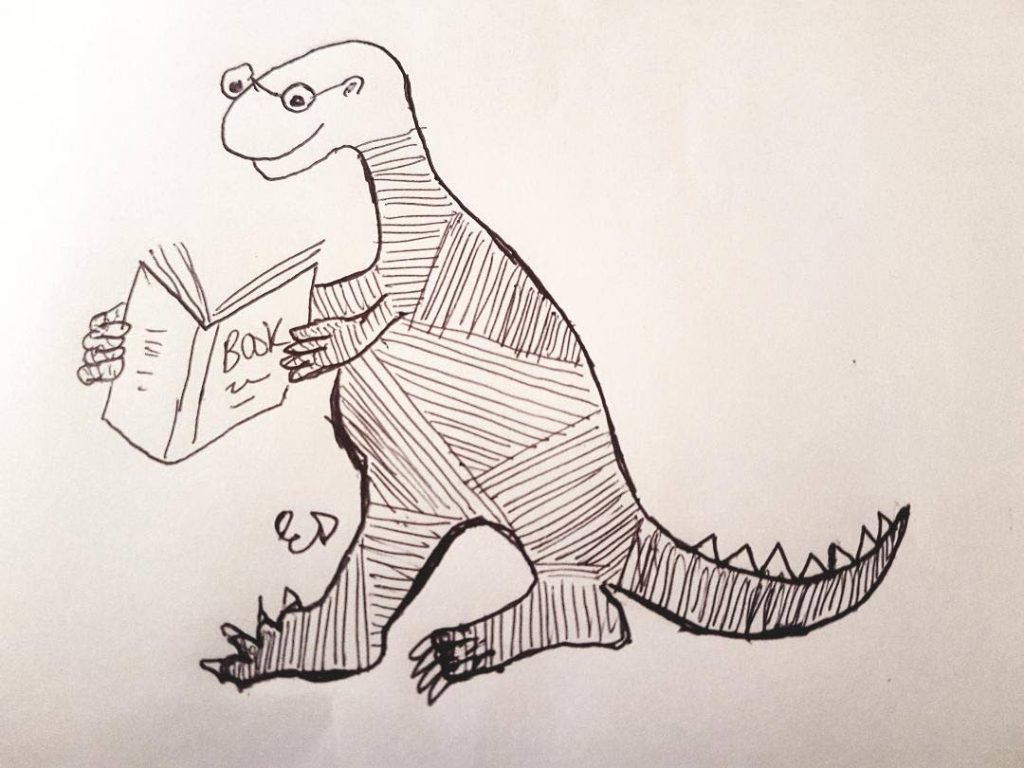The museum of life

By Elspeth Blanche Duncan
“Wow! Actual books!” someone commented, seeing the second-hand books laid out on the large Rubbermaid table set up for a Venus Doggess of Love (Tobago-based animal rescue NGO) fund-raising book sale at Shore Things Café.
A few of the people who came to the table appeared amazed to see physical, tangible books made of paper. In a world where there is now the quick and easy option of downloading books to "a device," tangible books are, for some, a rarity – almost relegated to the realms of antiquity, like vinyl records. Vinyl is currently making a comeback, so is not in the realm of cassettes and videotapes, which are perhaps obsolete for all but those who still have tape players and VCRs.
Much younger generations have probably never seen an actual video or audiocassette, far less the players that operated them. Such items may seem like cumbersome dinosaurs.
Even landline telephones, especially rotary ones, are Jurassic in nature, compared to today’s pocket-sized smart phones. As children, we would listen to "older" people talk about things that existed in “their days.” Never did we of "the younger generation" consider that one day we would be expressing similar sentiments.
However, as a friend and I were discussing recently, in our lifetime we have seen the most change in history, occurring within such a short space of time. This is due, in part, to the advent of the internet, speedier communication and digitization of the audiovisual content consumed by the world.
As children, my sisters and I loved to gather on some evenings, sitting in the dark with our parents watching slides of family vacations, projected onto the wall via the projector. It didn’t matter how many times we had seen the same slides. Our excitement never waned.
Then again, in “those days,” children were more easily captivated and entertained by such simple things. Life moved at a slower pace. Speed, immediacy and sensationalism were not a part of our consciousness or on our list of needs.
Do some of the "now" generation even know what slides, projectors and a "slower pace" are? Way back when, humans documented their lives by carving or painting images on cave walls and rocks. When photographs came along, images were captured on film. The digital age had not yet come along to replace the magic of photo development. I
say "magic" with the realisation that some may consider the development of photos to be an unnecessary and cumbersome waiting game.
When studying at Cambridge University, Andrew, one of my friends, and I would often buy rolls of film "on special," and spend the day together on foot or on our bikes, taking photos around town and environs. Leaving our rolls of film at the shop to be developed and printed was like waiting to open Christmas gifts. Eventually receiving the envelopes of printed images was one of the highlights of our multifaceted existence as students.
This excitement and surprise is not something that exists with digital images which are instantly visible on our phone or LCD screens.

My very first camera was a Pentax film camera. I still have it, somewhere at my parents’ house. While I might not use it now (as I have become accustomed to the ease and rapidity of digital images), there was a time when I found it sacrilegious or "not real" to use anything other than a film camera to capture images.
It is bizarre to think that, within my lifetime, computers (which we practically "live on" now) were once not even a part of our everyday existence. I remember being initially resistant to the idea of using one when I started working in advertising. Prior to that, I had always written by hand. Papers or theses were written by hand and someone paid to type them when necessary. Sometimes Mummy would also type things for me, as she is one of those who types quickly without having to look at the keyboard.
I’m sure many reading this have had the experience of tapes, books, rotary phones, handwriting...To us, that world was "yesterday," but to some it may seem like "old time ting." So many aspects of our modern age have taken a seemingly overnight quantum leap. Something created today can be considered obsolete by next week.
Stay tuned. My next article may come to you via a telepathic image in one of your dreams.


Comments
"The museum of life"